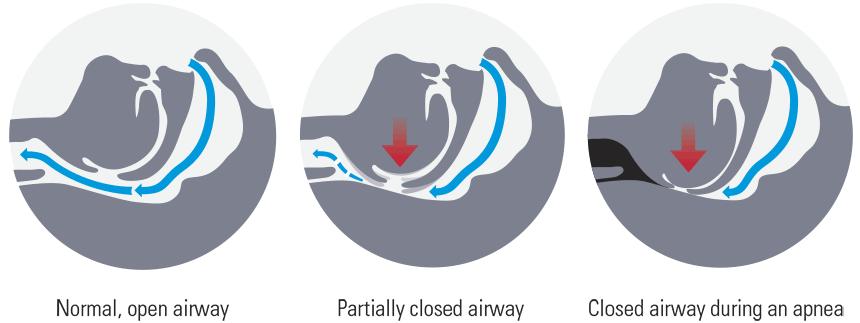What causes snoring is a question that can be answered multiple ways. From an anatomical standpoint, snoring is caused by a partially closed upper airway (the nose and throat). Everyone’s neck muscles relax during sleep, but sometimes they relax so much that the upper airway partly closes and becomes too narrow for enough air to travel through to the lungs.

Why do people snore?
Why do some people snore and others do not? Those who have enlarged tonsils, an enlarged tongue or excess weight around the neck are more prone to snoring. And structural reasons like the shape of one’s nose or jaw can also cause snoring. The snoring sound itself is a result of the narrowing of a person’s airway, which causes a throat vibration and the snoring sound. No matter the reason, 40% of normal adults snore regularly,1 whether they realise it or not.
Instead of the quiet normal breathing people make when they sleep, snoring is loud and very unpleasant. People who snore make a rattling, vibrating, noisy sound while breathing during sleep. Everybody snores occasionally, but when it becomes chronic, it can disturb your partner’s sleep and have far-reaching effects on your enjoyment of life.
Snoring is incredibly common, particularly in men. Almost 24% of men snore regularly, but they’re not alone. 17% of women snore too.1 If you have a partner or family member who disturbs your sleep night after night with their snoring, you know how disruptive it can be. And if you snore yourself, it’s important for your health – and your family harmony – that you address the problem.
Snoring and sleep apnea
Snoring and sleep apnea are linked at an alarming rate – three in 10 men and nearly two in 10 women who are habitual snorers suffer from some degree of obstructive sleep apnea.2 Sleep apnea prevents you from getting the healthy sleep you need to lead a refreshed, energetic life. So regardless of what is specifically causing snoring for you, if you snore — or if you suspect you snore — consider it a sign that something might not be right.
